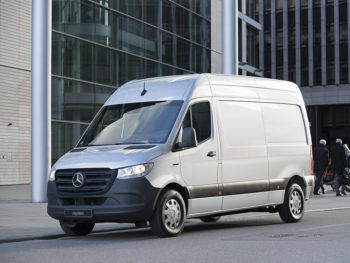Future residual values (RVs) of internal combustion engine (ICE) cars and vans are increasingly being seen as a gamble, driving fleet adoption of electric vehicles further.

Fleet management software firm FleetCheck has reported concerns from businesses across its outright purchase user base that demand for used petrol and diesel vehicles might start to substantially fall in the second half of the decade.
Andy Kirby, customer success director, explained: “There is a general feeling that, as we head towards the 2030 end of ICE production, no-one really knows what is going to happen to used vehicle buyer sentiment and therefore RVs.”
Kirby reported “extremes of belief” – some say that petrol and diesel demand will hold up because those vehicles offer definite advantages and will be in limited supply. But others believe that they will be seen as yesterday’s technology and abandoned.
“Because of this uncertainty, there is a feeling that ICE is increasingly a gamble when it comes to future RVs. The logic is that EV demand is now a solid bet for the future, while petrol and diesel will certainly fall away at some stage.”
The situation has been heightened by the current long delays affecting vehicle supply as a result of the semiconductor shortage.
“If you order a car today and are given a delivery date of late 2022 then, if you are operating on a four-year cycle, that takes you right up to 2026 as a disposal date, which feels very near to the 2030 deadline. The fear is that the used market will be quite different by then.”
And the longer replacement cycles on vans make the situation even more marked.
“We have some fleets who operate LCVs on a six-year cycle. That means if you place an order now, you’ll be potentially looking to sell that van in 2028, when it is likely that electric will be the fleet norm.
“When faced with these kinds of scenarios, we are increasingly seeing people choose electric today become it looks like the safer RV bet. This is a way of thinking that can only become more dominant as time passes.”

